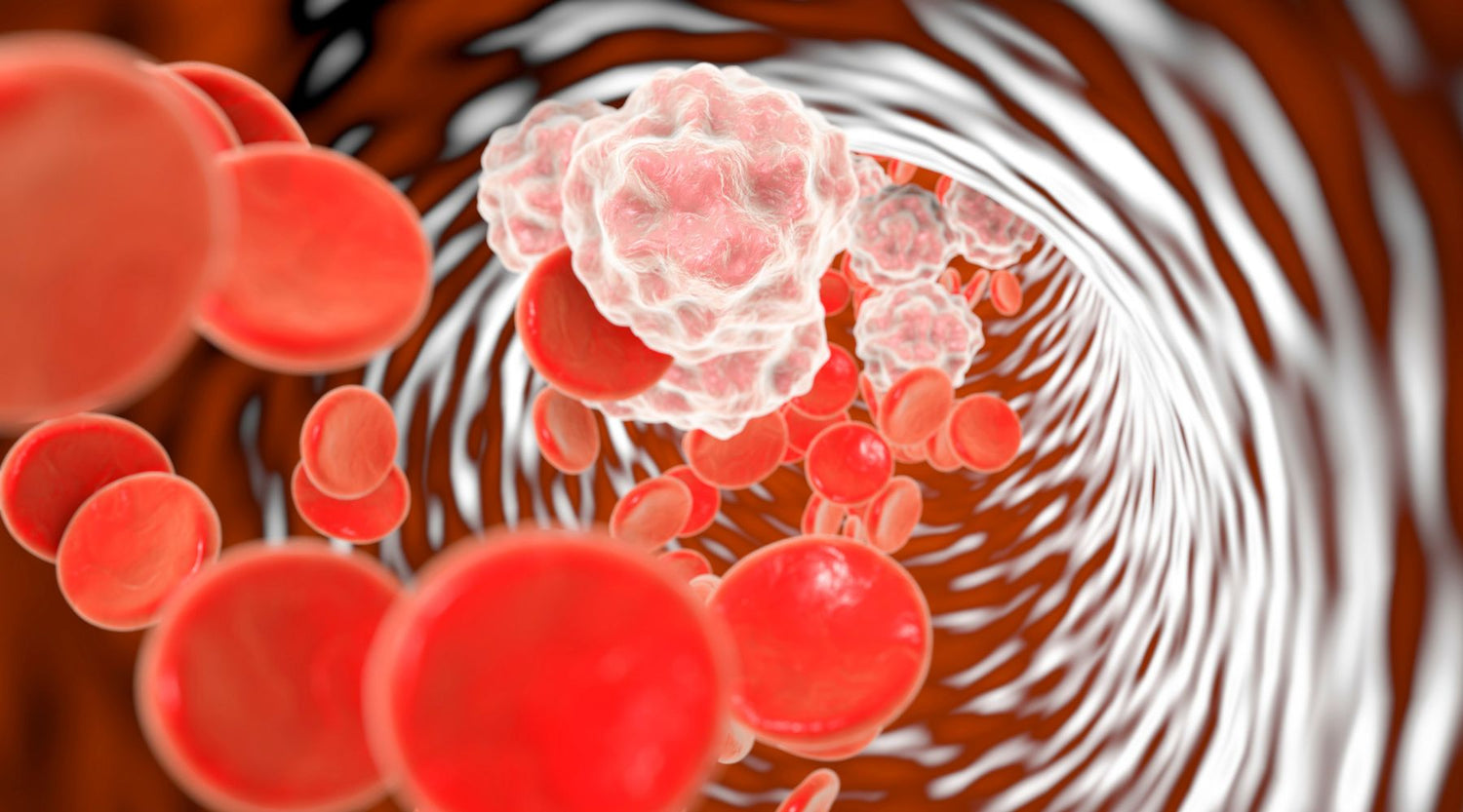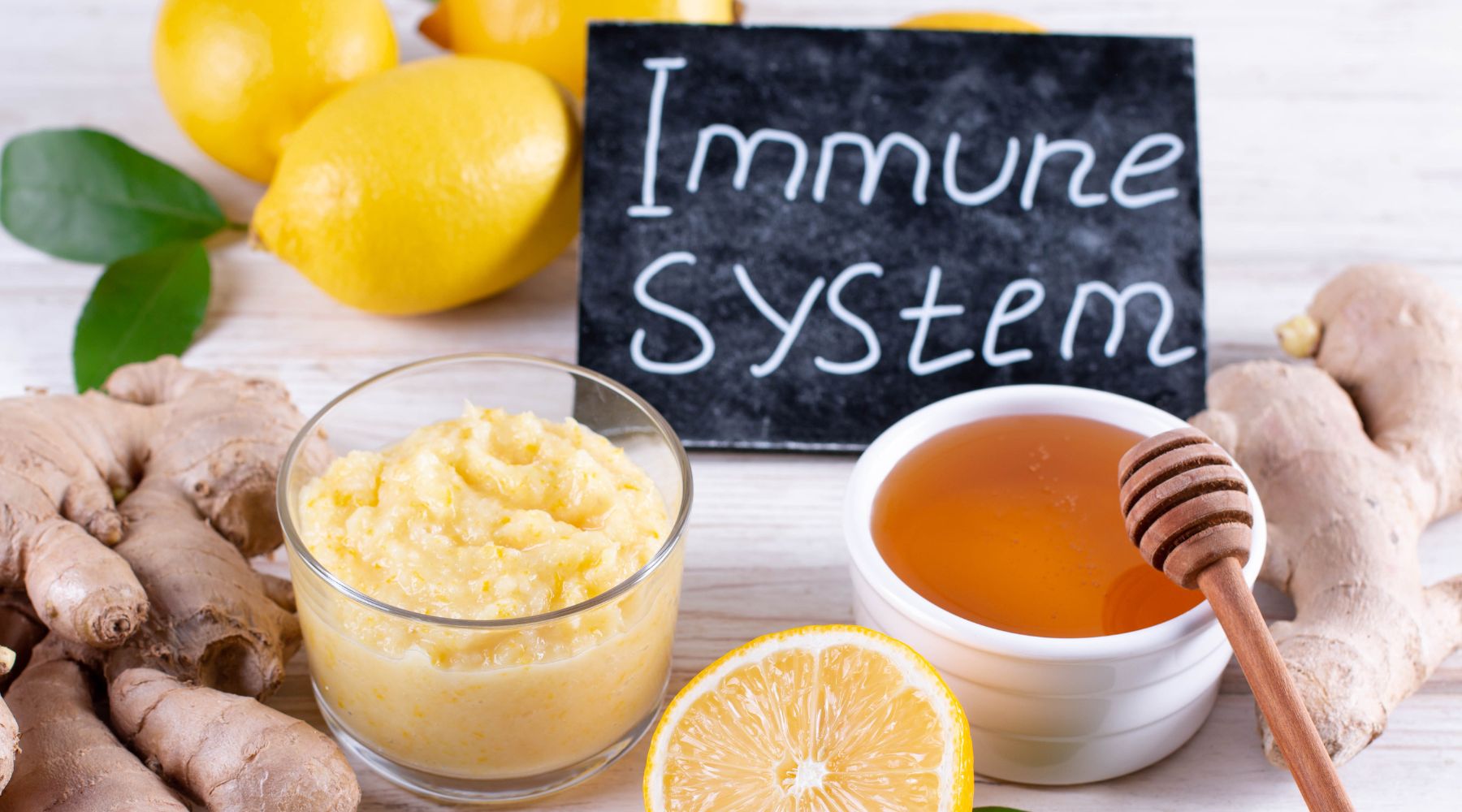Inflammation is a double-edged sword in the body. While it is a critical response to injury and infection, chronic inflammation can lead to numerous health problems, including cardiovascular diseases, diabetes, and autoimmune disorders. Spermidine, a naturally occurring polyamine found in all living cells, has garnered significant attention for its potential anti-inflammatory properties. In this blog post, we will explore the scientific evidence supporting the benefits of spermidine for reducing inflammation and promoting overall health.
What is Spermidine?
Spermidine is a polyamine that we naturally produce when we are young but our levels decline with age. It is known for its ability to activate autophagy, the body's vital cellular "clean-up" and recycling process that keeps your cells healthy and functioning properly. Through this mechanism, spermidine is able to target many of the root causes of aging, including inflammation, or "inflammaging".
Inflammation in the Context of Aging
Inflammation plays a crucial role in the aging process, named as one of the 12 "hallmarks of aging," which are the root causes of aging as identified by scientists [1]. As we grow older, our bodies experience a gradual increase in low-grade, chronic inflammation that can contribute to various age-related health issues. This persistent inflammatory state is characterized by elevated levels of pro-inflammatory molecules circulating in the bloodstream. Unlike the acute inflammation that helps us heal from injuries or fight off infections, this chronic inflammation can damage tissues and organs over time. It's important to note that inflammation isn't inherently bad – it's a natural part of our immune response. However, as we age, our bodies become less efficient at regulating this process, leading to an imbalance [2, 3]. This chronic inflammation has been linked to many age-related conditions, including cardiovascular disease, diabetes, arthritis, and even cognitive decline. Understanding inflammaging has opened up new avenues for research into interventions that target this to slow down the aging process and improve health in our later years.
The Role of Spermidine in Reducing Inflammation
Spermidine has emerged as one of these interventions in the fight against inflammation and its effects on aging. This versatile compound has been shown to exert anti-inflammatory effects through various mechanisms, making it an intriguing subject for researchers exploring new ways to combat chronic inflammation. Spermidine's ability to support immunity, promote autophagy, and protect against oxidative stress collectively contribute to its anti-inflammatory properties. Let's delve deeper into each of these mechanisms to understand how spermidine can help to calm the "inflammatory fire".
Modulating the Immune Response
Firstly, spermidine acts like a traffic controller for our immune system, helping to keep inflammation in check. When our internal body faces a threat, it often responds with inflammation, which is typically a helpful mechanism but can sometimes go overboard. This is where spermidine steps in. In a fascinating study, scientists discovered that spermidine can actually turn down the volume on our body's inflammatory alarm system. It does this by reducing the production of certain inflammatory molecules, two in particular known as interleukin-6 (IL-6) and tumor necrosis factor-alpha (TNF-α) [4], that are essentially the immune system's alarm bells.
Spermidine has further been shown to work via immune cells called macrophages. These cells can be thought of as the immune system's clean-up crew, coming in two flavors: the aggressive, inflammatory type (M1) and the calmer, healing type (M2). Spermidine encourages these cells to switch from the aggressive type to the healing type [4]. By nudging our immune system in this way, spermidine helps maintain a healthy balance of these flavors, ensuring that our body's defense mechanisms are neither too weak nor too strong. This balancing act is crucial in preventing the kind of excessive inflammation that can lead to various health problems as we age.
Promoting Autophagy
Autophagy, a term derived from Greek words meaning "self-eating," is the body's cellular "clean-up" and recycling system. It's a natural process where cells break down and recycle their own components, removing damaged or unnecessary parts to maintain optimal function. This cellular housekeeping is critical in maintaining cellular health and reducing inflammation.
Spermidine has been identified as a potent inducer of autophagy, which contributes significantly to its anti-inflammatory effects. By promoting autophagy, spermidine prompts the clear out of damaged cellular components and dysfunctional mitochondria, which can often be sources of inflammatory signals. More specifically, research has shown that spermidine-induced autophagy leads to a reduction in a major inflammatory trigger, known as NLRP3 inflammasome activation [5]. It has also been linked to improved clearance of protein aggregates (clumps of misfolded or damaged proteins that stick together) and reduced oxidative stress, both of which contribute to chronic inflammation [6]. In animal models, spermidine supplementation has been associated with increased autophagy markers and concurrent reductions in inflammatory biomarkers, suggesting a direct link between spermidine-induced autophagy and inflammation reduction [7].
Protecting Against Oxidative Stress
Oxidative stress is caused by an imbalance between harmful molecules called free radicals and helpful defenders known as antioxidants. While some free radicals are normal, too many can damage cells, leading to health problems and speeding up aging [8]. Oxidative stress and inflammation are closely intertwined, often feeding into each other in a vicious cycle. Spermidine's role in protecting against oxidative stress is another important mechanism by which it helps reduce inflammation. It is a powerful antioxidant, helping to neutralize harmful free radical molecules called reactive oxygen species (ROS) that can damage cellular components and trigger inflammatory responses. Studies have demonstrated that spermidine supplementation leads to increased levels of antioxidant enzymes (the good guys!) such as superoxide dismutase and catalase [9,10]. This enhanced antioxidant defense system helps maintain cellular redox balance, preventing the oxidative damage that can lead to chronic inflammation.
Furthermore, spermidine has been shown to protect mitochondrial function, which is crucial for cellular energy production and thus, energy levels. By preserving mitochondrial integrity, spermidine helps prevent the release of mitochondrial DNA and other damage-associated molecular patterns (DAMPs) that can trigger inflammatory responses in the body [11]. The combined effect of ROS scavenging and mitochondrial protection contributes significantly to spermidine's anti-inflammatory properties, making it a promising compound in the management of oxidative stress-related inflammation.
Spermidine and Inflammatory Conditions
Spermidine has shown promising potential in supporting the treatment of various inflammatory disorders, making it an intriguing subject for researchers and clinicians alike. Studies have demonstrated its efficacy in alleviating symptoms and reducing inflammation in several conditions, including autoimmune diseases and inflammatory bowel disorders. Let's break down what scientists have discovered so far:
- In a study using a model of multiple sclerosis, a chronic autoimmune disease that affects the central nervous system, spermidine helped slow down the disease's progression. It did this by calming down overactive immune cells called macrophages and encouraging them to produce more anti-inflammatory substances [4]. Think of it as turning these cells from troublemakers into peacekeepers.
- Similarly, in studies on inflammatory bowel conditions, spermidine had a positive impact. It promoted friendly immune cells, helped maintain a healthy balance of gut bacteria, and even protected the delicate lining of the intestines. All of these effects were linked to the activation of a protein that helps regulate inflammation in our bodies [12].
- In brain cells called microglia, which can sometimes cause inflammation in the nervous system, spermidine helped reduce their production of inflammatory substances [13]. This could mean spermidine has a positive influence on cognitive health through the regulation of inflammation.
Incorporating Spermidine Into Your Routine
If you're intrigued by spermidine's potential benefits for combatting inflammaging, here are some ways to incorporate it into your daily life:
Food Sources: Include spermidine-rich foods in your diet. Good sources include:
- Wheat germ
- Soybeans and soy products
- Aged cheeses
- Mushrooms
- Fermented foods
Supplements:
- Consider a clean, food-derived spermidine supplement like Primeadine®, with ingredients sourced from the longevity hotspot of Japan and incredible client reviews.
Conclusion
Spermidine stands out in the fight against inflammation due to its multifaceted approach. It modulates immune responses, promotes cellular cleanup, and protects against oxidative stress, making it a versatile tool. As research progresses, spermidine's potential in managing inflammatory conditions and supporting healthy aging becomes increasingly evident. For those looking to enhance their wellness routine incorporating spermidine, whether through diet or supplements, could support immune function and work to prevent this prominent hallmark of aging.
References
[1] Saavedra, D., Añé-Kourí, A.L., Barzilai, N. et al. Aging and chronic inflammation: highlights from a multidisciplinary workshop. Immun Ageing 20, 25 (2023). https://doi.org/10.1186/s12979-023-00352-w
[2] Li, X., Li, C., Zhang, W. et al. Inflammation and aging: signaling pathways and intervention therapies. Sig Transduct Target Ther 8, 239 (2023). https://doi.org/10.1038/s41392-023-01502-8
[3] Franceschi, C., Garagnani, P., Parini, P. et al. Inflammaging: a new immune–metabolic viewpoint for age-related diseases. Nat Rev Endocrinol 14, 576–590 (2018). https://doi.org/10.1038/s41574-018-0059-4
[4] Yang, Q., Zheng, C., Cao, J. et al. Spermidine alleviates experimental autoimmune encephalomyelitis through inducing inhibitory macrophages. Cell Death Differ 23, 1850–1861 (2016). https://doi.org/10.1038/cdd.2016.71
[5] Li X, Zhou X, Liu X, Li X, Jiang X, Shi B, Wang S. Spermidine protects against acute kidney injury by modulating macrophage NLRP3 inflammasome activation and mitochondrial respiration in an eIF5A hypusination-related pathway. Mol Med. 2022 Sep 4;28(1):103. doi: 10.1186/s10020-022-00533-1. PMID: 36058905; PMCID: PMC9441050
[6] Pang Y, Wu L, Tang C, Wang H, Wei Y. Autophagy-Inflammation Interplay During Infection: Balancing Pathogen Clearance and Host Inflammation. Front Pharmacol. 2022 Feb 22;13:832750. doi: 10.3389/fphar.2022.832750. PMID: 35273506; PMCID: PMC8902503
[7] Hofer, S.J., Daskalaki, I., Bergmann, M. et al. Spermidine is essential for fasting-mediated autophagy and longevity. Nat Cell Biol 26, 1571–1584 (2024). https://doi.org/10.1038/s41556-024-01468-x
[8] Pham-Huy LA, He H, Pham-Huy C. Free radicals, antioxidants in disease and health. Int J Biomed Sci. 2008 Jun;4(2):89-96. PMID: 23675073; PMCID: PMC3614697
[9] Tatjana V Čelić, Srđana Đorđievski, Elvira L Vukašinović, Ivan Pihler, Danijela Kojić, Jelena Purać, Spermidine supplementation influence on protective enzymes of Apis mellifera (Hymenoptera: Apidae), Journal of Insect Science, Volume 24, Issue 5, September 2024, 3, https://doi.org/10.1093/jisesa/ieae098
[10] Jiang D, Guo Y, Niu C, Long S, Jiang Y, Wang Z, Wang X, Sun Q, Ling W, An X, Ji C, Zhao H, Kang B. Exploration of the Antioxidant Effect of Spermidine on the Ovary and Screening and Identification of Differentially Expressed Proteins. Int J Mol Sci. 2023 Mar 17;24(6):5793. doi: 10.3390/ijms24065793. PMID: 36982867; PMCID: PMC10051986
[11] Dela Cruz CS, Kang MJ. Mitochondrial dysfunction and damage associated molecular patterns (DAMPs) in chronic inflammatory diseases. Mitochondrion. 2018 Jul;41:37-44. doi: 10.1016/j.mito.2017.12.001. Epub 2017 Dec 6. PMID: 29221810; PMCID: PMC5988941
[12] Niechcial A, Schwarzfischer M, Wawrzyniak M, Atrott K, Laimbacher A, Morsy Y, Katkeviciute E, Häfliger J, Westermann P, Akdis CA, Scharl M, Spalinger MR. Spermidine Ameliorates Colitis via Induction of Anti-Inflammatory Macrophages and Prevention of Intestinal Dysbiosis. J Crohns Colitis. 2023 Oct 20;17(9):1489-1503. doi: 10.1093/ecco-jcc/jjad058. PMID: 36995738; PMCID: PMC10588784
[13] Choi, Y.H., Park, H.Y. Anti-inflammatory effects of spermidine in lipopolysaccharide-stimulated BV2 microglial cells. J Biomed Sci 19, 31 (2012). https://doi.org/10.1186/1423-0127-19-31





Leave a comment
All comments are moderated before being published.
This site is protected by hCaptcha and the hCaptcha Privacy Policy and Terms of Service apply.